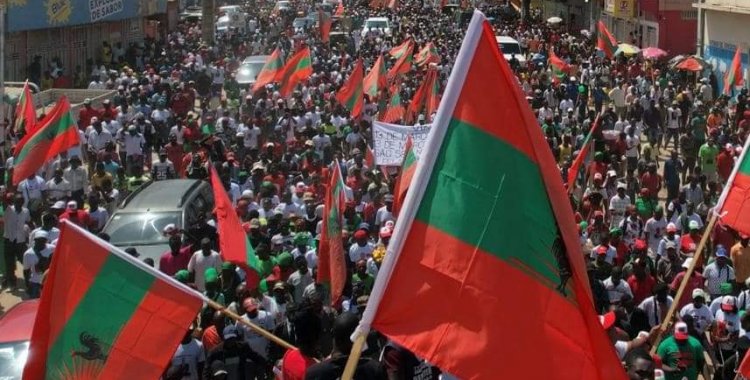This position is based on the declaration of the National Union for the Total Independence of Angola (UNITA) alluding to 22 years of peace in Angola, which marks this Thursday.
UNITA takes a look back at the party's action up until the 4th of April, a day, it highlights, that figures in the history of Angola as the day of Peace and National Reconciliation, culminating a long process that was based on the Alvor Accords, in January 1975, Bicesse, in 1991 and Lusaka, in 1994.
According to the largest opposition party in the country, the peace achieved in 2002 was an immediate objective of UNITA's struggle for which its founding leader, Jonas Savimbi, "never haggled efforts and undertook multiple diplomatic initiatives with international organizations, states and friends to its implementation".
"Within UNITA, the founding president guided the party structures, the then Armed Forces for the Liberation of Angola – FALA – and the populations towards the imminence of peace, he did not spare himself from physical and other sacrifices, to the point of to donate his own life on the sacred altar of his country", reads the statement, referring to the death in combat of Jonas Savimbi on February 22, 2002.
UNITA's central message is, however, that "with the signing of the Luena Complementary Memorandum of Understanding, new and better expectations were opened for Angolans, in all areas, contrasted with the current reality in the country today".
The reality, he emphasizes, is the "stagnation of the process of consolidation and deepening of the Democratic Rule of Law", with the absence of institutionalization of the Local Government, "the significant increase in poverty and the unemployment rate", with emphasis on young people of active, and "uncontrolled rise in prices of basic food products".
The loss of workers' purchasing power, he insists, results in "hunger that today hits all social strata hard and causes the shameful spectacle of disadvantaged people resorting to rubbish bins to alleviate hunger".
The largest opposition party also lists among the difficulties "growing indicators of endemic and systemic corruption, in the bodies of the State apparatus, in some cases in the form of direct awarding of contracts to companies belonging to friends and people linked to political power" and the interference and control of judicial bodies by political power.
"The partisanship and hijacking of state media bodies, to name just these elements that illustrate how the expectations generated by the advent of peace and national reconciliation were defrauded", he adds in the statement.
UNITA reaffirms that it "fully complied" with its part of the peace agreements, transforming the political organization "completely into a democratic political party, in light of its founding manifesto, the Constitution of the Republic of Angola and the Law on Political Parties".
The party also reiterates its predisposition for dialogue with the Government "so that it can complete the effective social insertion of ex-combatants as well as return UNITA's material heritage", and openness to dialogue with all social partners "to find the better solutions to the country's most relevant problems".
This Thursday, Angola celebrates 22 years of peace, achieved with the signing of the Luena Complementary Memorandum of Understanding, on April 4, 2002, which put an end to almost three decades of war in the country.







